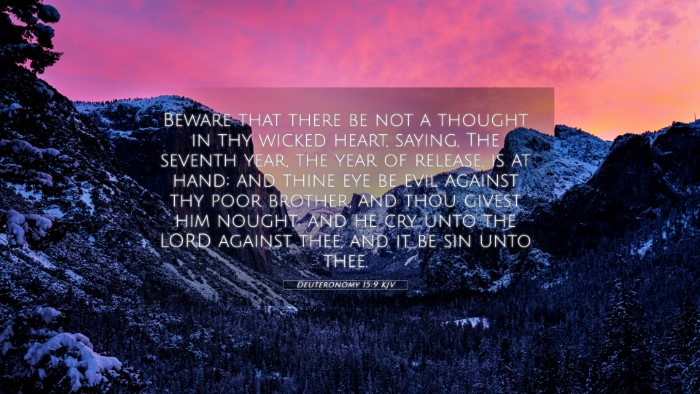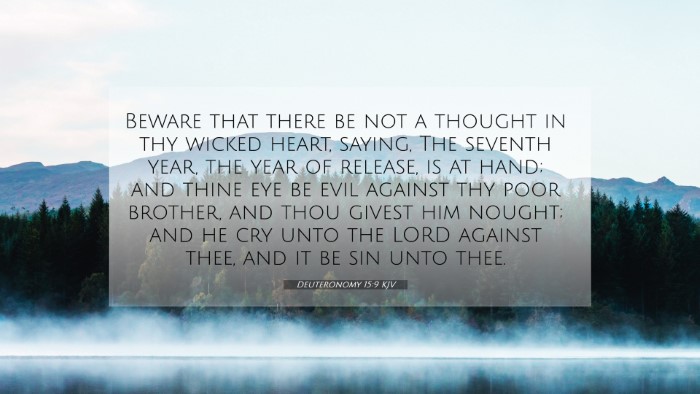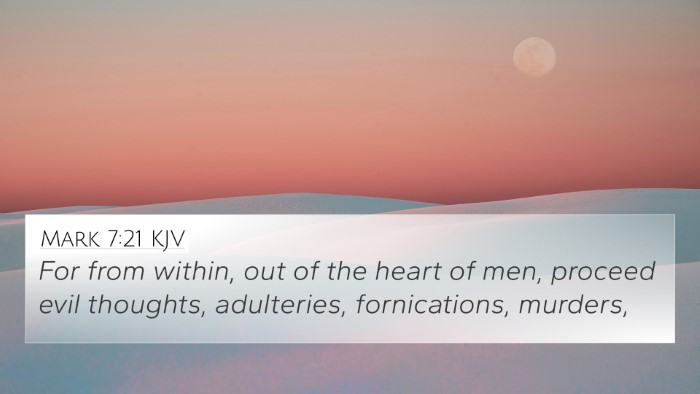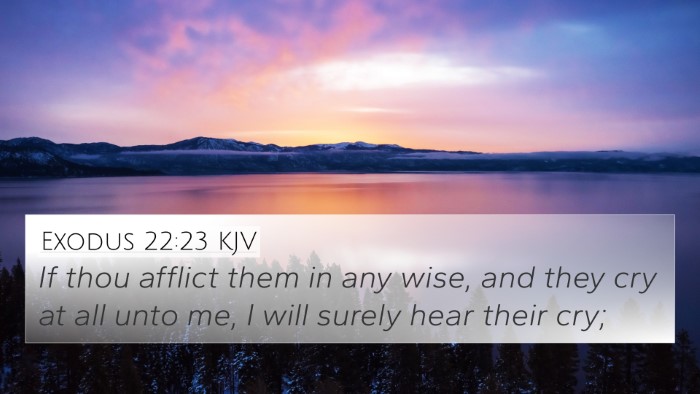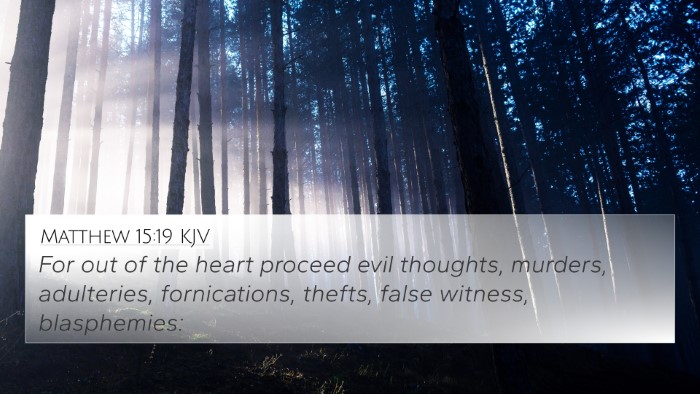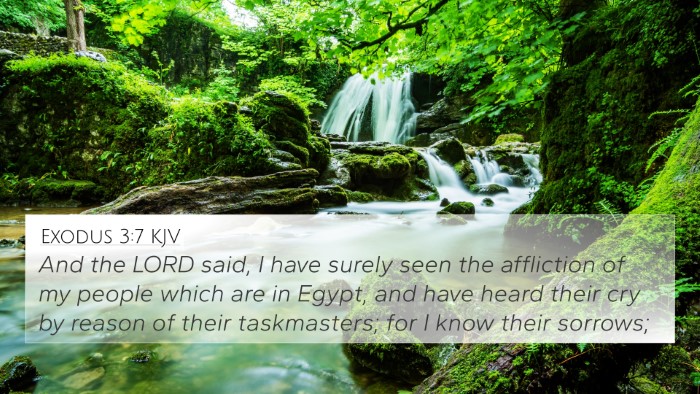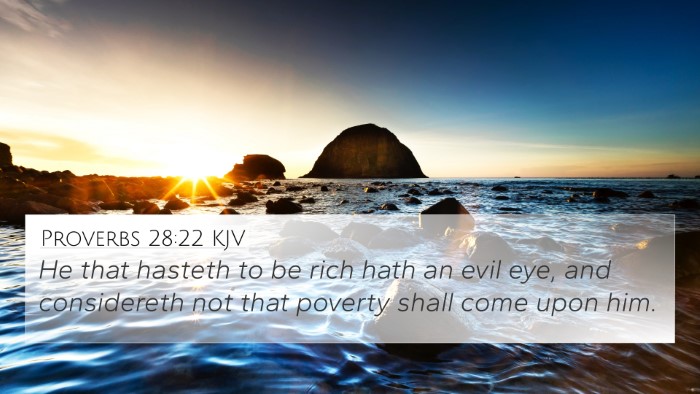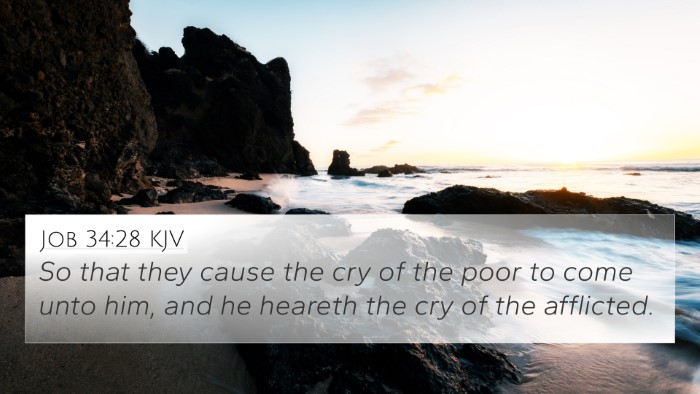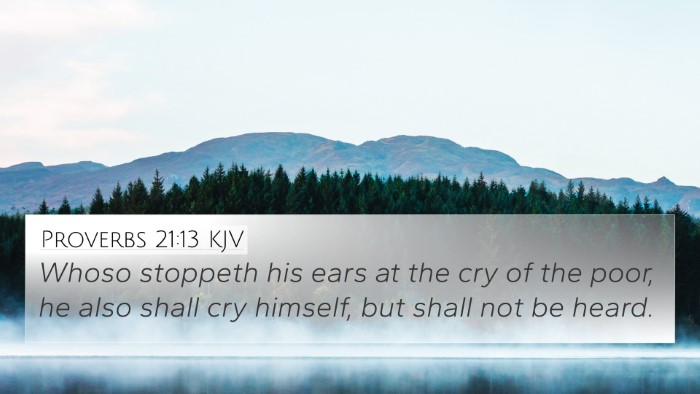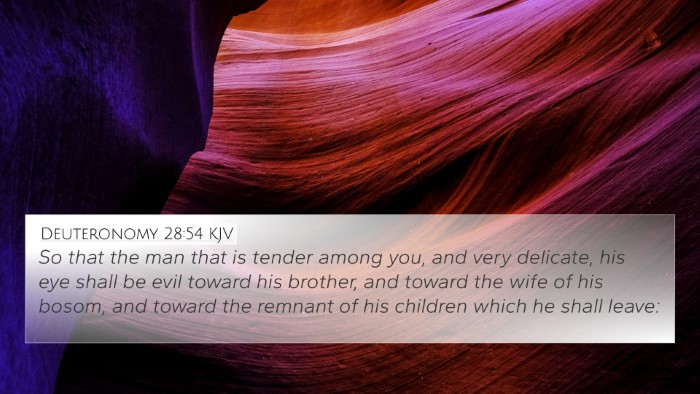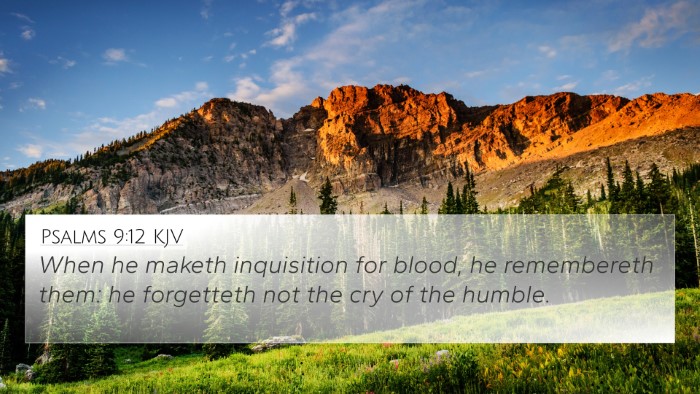Understanding Deuteronomy 15:9
Deuteronomy 15:9 states, "Beware that there be not a thought in thy wicked heart, saying, The seventh year, the year of release, is at hand; and thine eye be evil against thy poor brother, and thou givest him nought; and he cry unto the LORD against thee, and it be sin unto thee."
This verse addresses the moral and ethical responsibilities in the context of lending and giving, particularly in the light of the year of release, which takes place every seventh year in Israel where debts are forgiven and servants are freed.
Analysis from Public Domain Commentaries
Matthew Henry’s Commentary
Henry emphasizes the importance of maintaining a generous heart, particularly as the year of release approaches. He warns against greed and selfishness, suggesting that as the year of release draws near, one might be tempted to withhold help from those in need. He stresses that under such circumstances, one's heart may become hardened, leading to sin not only against fellow men but also against God.
Albert Barnes’ Notes on the Bible
Barnes interprets this verse as a precaution against the potential pitfalls of economic release. He outlines that the law provides freedom for debtors, which could lead to stinginess from the lenders as they anticipate the coming year of release. This tension emphasizes the need for compassion, reminding the Israelites that their actions towards the poor reflect their obedience to God's commandments.
Adam Clarke’s Commentary
Clarke highlights the specific warning to not allow a “wicked thought” to take root in one’s heart. He interprets the “evil eye” as a metaphor for jealousy or malice that can arise when someone feels their economic interests are threatened. Clarke elaborates that God's perspective on justice requires His people to act righteously towards one another, especially in times of potential economic strain.
Thematic Connections
Deuteronomy 15:9 showcases several thematic Bible verse connections that echo similar principles of morality, generosity, and social responsibility.
- Exodus 23:10-11: This passage discusses the importance of allowing the land to rest every seventh year, paralleling the principles of release in Deuteronomy 15.
- Leviticus 25:35-37: It reinforces the moral obligation to assist the poor, emphasizing the importance of charity without expecting repayment.
- Matthew 6:12: In the Lord's Prayer, Jesus teaches His followers to forgive debts, drawing a direct connection to the concept of releasing others from financial burdens.
- Luke 6:34-35: Jesus exhorts His followers to lend expecting nothing in return, much like the expectations in Deuteronomy concerning giving to the poor.
- James 2:15-16: This passage challenges believers about faith if they do not help the needy, mirroring the exhortations in Deuteronomy about responsibilities toward the poor.
- Galatians 6:10: Paul encourages believers to do good to all, especially fellow believers, echoing the social principles found in Deuteronomy 15.
- 1 John 3:17: It questions how God’s love can dwell in someone who has material wealth but does not help others in need, again tying back to the attitudes condemned in Deuteronomy 15:9.
Practical Applications
Understanding Deuteronomy 15:9 raises important considerations about how Christians can live out their faith in practical and tangible ways. Here are some applications:
- Generosity: Embracing a lifestyle of giving, particularly towards those in need, as a reflection of Christ's love.
- Awareness: Being mindful of one's thoughts and attitudes towards others, especially during economic hardship.
- Forgiveness: Practicing the principles of forgiveness in financial and personal relationships.
- Community Support: Engaging in community efforts to support and uplift those facing poverty.
Conclusion
In conclusion, Deuteronomy 15:9 serves as a vital reminder of the ethical implications of our financial interactions, especially concerning the aid of the poor and the needy. Through understanding the connections between this verse and others, one can not only grasp its historical context but also its application in modern faith practices.
Using Bible Cross-References
For anyone eager to explore further, using tools for Bible cross-referencing can deepen understanding and enhance spiritual growth. Methods include:
- Utilizing a Bible concordance to trace themes and words.
- Engaging in cross-reference Bible study to see how verses relate and complement each other.
- Employing a cross-reference Bible study guide for systematic exploration.
- Participating in discussions that identify Bible chain references related to similar themes.

